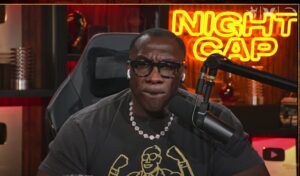Vote-buying intensifies, survey finds
DESPITE a recent wave of rejection of vote-buying by candidates running for seats in the upcoming general election, Jamaicans are still selling their votes; in some cases for as little as $500, a new study has found.
University of the West Indies anthropologist Dr Herbert Gayle, in a ‘snapshot’ study done between November 23 and 30, 2011, canvassed the opinions of 240 young men and women in urban and rural Jamaica across 12 parishes, including 27 constituencies.
The respondents were grouped by age and geography with 30 rural males between 18 and 34 years old and 30 rural males over the age of 35 interviewed. Thirty urban males between 18 and 34, and 30 urban males over 35 were also surveyed. The same features distinguished female respondents, ie 30 rural females 18 to 34 years old and 30 rural females over the age of 35 were included in the survey. Also, 30 urban females 18 to 34 years and 30 urban females older than 35 years were surveyed.
The surveyors asked the respondents the following questions:
1. Have you ever witnessed persons receiving gifts or money from politicians at election time?
2. What do they normally receive?
3. When was the last time you witnessed such activities?
They were also asked to say which of the following applied to them regarding receiving gifts from politicians at election time:
* Yes, I have, but it never affected the way I voted.
* Yes, I have, and to tell the truth, it affected the way I voted.
* Yes, I have, because none of them is any different and so I have voted for the one that pays me.
* I would vote for anyone who pays me; why not?
* I would take money from a politician, but it would not affect my vote.
* No, I have never done so.
* No, I have never done so, and never will.
The UWI anthropologist declined to reveal which 27 constituencies were surveyed for what he said were ethical reasons. However, of the island’s 14 parishes, the study only excluded Hanover and St Elizabeth for reasons of access. It features opinions canvassed from persons in urban (town clusters) of Kingston, St Catherine (Portmore, Spanish Town) and St James (Montego Bay). Persons from rural town clusters in Westmoreland, St Ann, St Mary, Portland, St Thomas, Manchester, Clarendon and Trelawny were also polled.
The research team, he said, found there was evidence of vote-buying in almost all of the 27 constituencies canvassed.
“The shocking finding is that only one of the 27 constituencies provided no evidence of vote-buying… So widespread is the practice that in some constituencies the team interviewed less than 10 persons conveniently, and a third of these persons had experienced vote-buying. Note that more than a third (88 of 240) of the sample has experienced direct face-to-face vote-buying,” said Gayle.
The data also suggest that the poorer and more desperate the people of the constituency are, the cheaper their votes can be bought.
“Several persons in the inner cities received no more than $500, though the two modal receipts were $2,000 and $5,000. The poor were also very likely to be trapped with food. In some cases their package never amounted to more than $1,000. There were a few, however, who received as much as 50 pounds of rice, along with (tinned) mackerel,” said the anthropologist.
“The poor were also likely to receive phone cards and even mattresses. The rural poor were very likely to be baited with livestock, seeds and fertiliser. In a few cases, both rural and urban near-poor were drawn by construction material. A few received vouchers of $20,000 and $40,000 which they could take to specific hardware stores. These were told to the researchers who called to verify that the data was accurate.”
Again, Dr Gayle declined to divulge the name of these businesses for what he termed ethical reasons.
However, he noted that the data suggest a more deadly practice persists; the exchange of guns for votes, a feature of violent elections in the 1970s and 80s. Some of those surveyed said they had recently witnessed this.
“… three young men were seen demanding a gun from the MP and were witnessed collecting them at later dates. It is important to note that two of these guns were distributed only weeks ago, suggesting that politicians are still in the business of distributing guns to inner-city youth. In these latter cases, the respondent explained that they saw the youth begging for the gun and also saw when a car turned up with a package to give the youth. In one case, the youth pulled a 9mm Glock pistol only minutes after the delivery was made and publicly boasted that his MP was for real.
“Him a di real big man. Look pon what him send for me. Now mi can go look some food,” the young man is reported as saying.
The vote-buying has also intensified as campaigning accelerated ahead of the pending poll over the past few months, Gayle said. The number of persons who have witnessed blatant vote-buying has also increased.
“If we add the vote-buying activities of the weeks of November 13-19 and the week of November 20-26 with the month of October and month of November (other than those two very active weeks in November that are isolated) we get a sum of 52 cases witnessed,” Dr Gayle noted.
“This represents 59 per cent of all cases. This period (October and November 2011) represents a period of very aggressive political campaigning. The second most popular period was 2007, the last election. While the data cannot be compared, it tells us a story that vote-buying is current and critical in the campaigning strategy of our political parties. The continuous distribution of guns by a few politicians suggests that politicians will try to gain votes in Jamaica by any means necessary, if no serious sanctions are applied to reduce vote-buying,” he said.
Dr Gayle’s research also showed vote-buyers preyed on the poor. Hence, of the 88 persons who had witnessed vote-buying, 45 per cent were poor. But the anthropologist noted that the near-poor (lower middle classes) and the middle and upper class are not immune.
“As one explained, ‘I have never seen it in my community, but at my workplace’. Fifty-three per cent (47 of the 88 who witnessed vote-purchasing) were males, suggesting that gender is not important here. The same proportion of persons was between the age of 18 and 34, that means age is also not important in determining if one witnesses the practice. This is because the practice is very widespread,” Gayle concluded.
According to Gayle, “the practice of vote-buying in Jamaica is so extensive that it has become a part of culture and even entertainment at election times”.
“In fact, many Jamaicans have even created a rationale for taking bribes at election times. They see it as an act of justice — their chance to get back some of the funds corrupt politicians took from the public purse,” he said.
He pointed to what one rural respondent told researchers: “We know that they tief our money and pretend that is private sector give it to them. We join the game too. Anybody offer me money I take it, but they are not getting my vote. It is justice and in fact it is part of the entertainment in this community as elections approach”.












